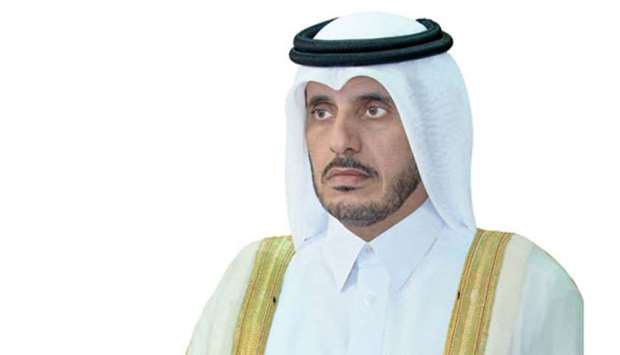HE the Prime Minister and Minister of Interior Sheikh Abdullah bin Nasser bin Khalifa al-Thani will attend a Gulf summit in Makkah this weekend, one of the first high-level meetings with blockading nations since the embargo was imposed on Qatar nearly two years ago.
Announcing the attendance of HE Sheikh Abdullah bin Nasser, Qatar's Foreign Ministry spokesperson HE Lolwah Alkhater said Qatar has never been absent from active and positive participation at all levels --Arab, Islamic and international.

"It again puts the supreme interest of the region above bilateral differences, as the wise leadership has decided to take part at a high level with the participation of HE Sheikh Abdullah bin Nassar al-Thani at the three Makkah Summits," she tweeted.

A high-level source told Al Jazeera on Wednesday the face-to-face between HE Sheikh Abdullah and top officials from Saudi Arabia, the United Arab Emirates (UAE), Bahrain and other countries will take place at the meeting starting today.
The summit is expected to focus on regional security issues amid soaring tension between Iran and the United States and its Gulf allies.
His Highness the Amir Sheikh Tamim bin Hamad al-Thani received an invitation from Saudi King Salman to attend the emergency Gulf Cooperation Council (GCC) summit earlier this week.
"The fact that the Saudis contacted the Amir of Qatar directly suggests that the tension with Iran is taken very seriously in Riyadh. So the kingdom is ready to build a broader-than-usual consensus on how to deal with Iran," Andreas Krieg from King's College London told Al Jazeera.
In June 2017, Saudi Arabia, Egypt, Bahrain and the UAE cut off ties with Qatar and imposed a land, sea, and air blockade on the Gulf state.
The quartet accuses Doha of supporting "terrorism" and proscribed opposition political movements, such as the Muslim Brotherhood.
Qatar has repeatedly rejected the accusations as baseless.
Some observers interpreted the invitation to Qatar's leaders as meaning the Saudi-led blockading countries may be backing down from their accusations against Doha.
Kristian Coates Ulrichsen, a Baker Institute fellow for the Middle East said Prime Minister Abdullah's presence in Makkah could serve "as a confidence-building measure that can alleviate strains with Saudi Arabia".
The emergency summit in Makkah will focus on regional security concerns as US-Iran tensions continue to rise.
US-Iran animosity has soared recently over Washington deploying an aircraft carrier strike group, B-52 bombers, and 1,500 more troops to the Gulf over a still-unexplained threat it perceives from Tehran.
A war of words between the US and Iran has escalated since US President Donald Trump withdrew from a 2015 multinational nuclear pact with Iran and reimposed sanctions, notably targeting Tehran's key oil exports.
Iran says it will not be cowed by what it has called "psychological warfare".



